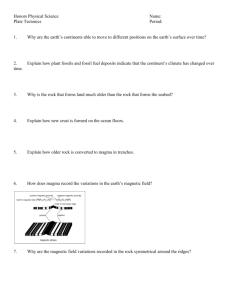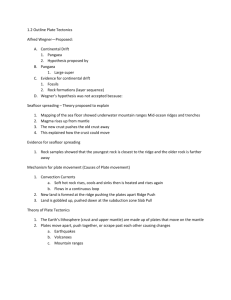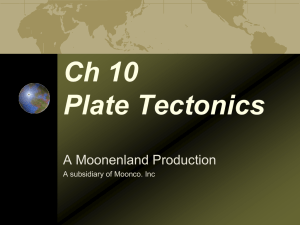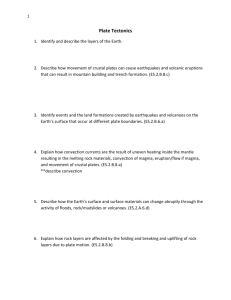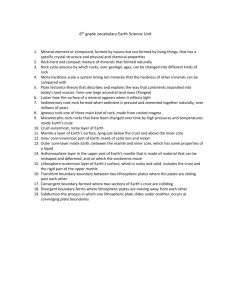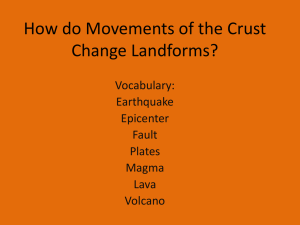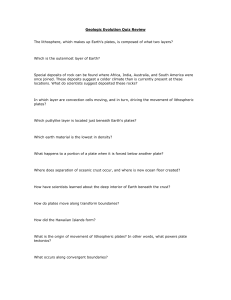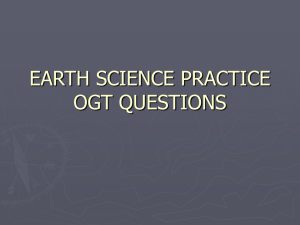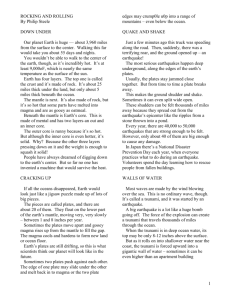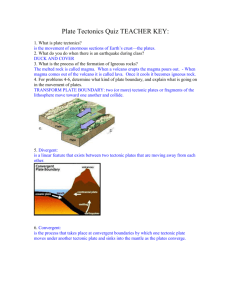Plate Tectonics Continental Drift Alfred __________ (1912) German __________
advertisement
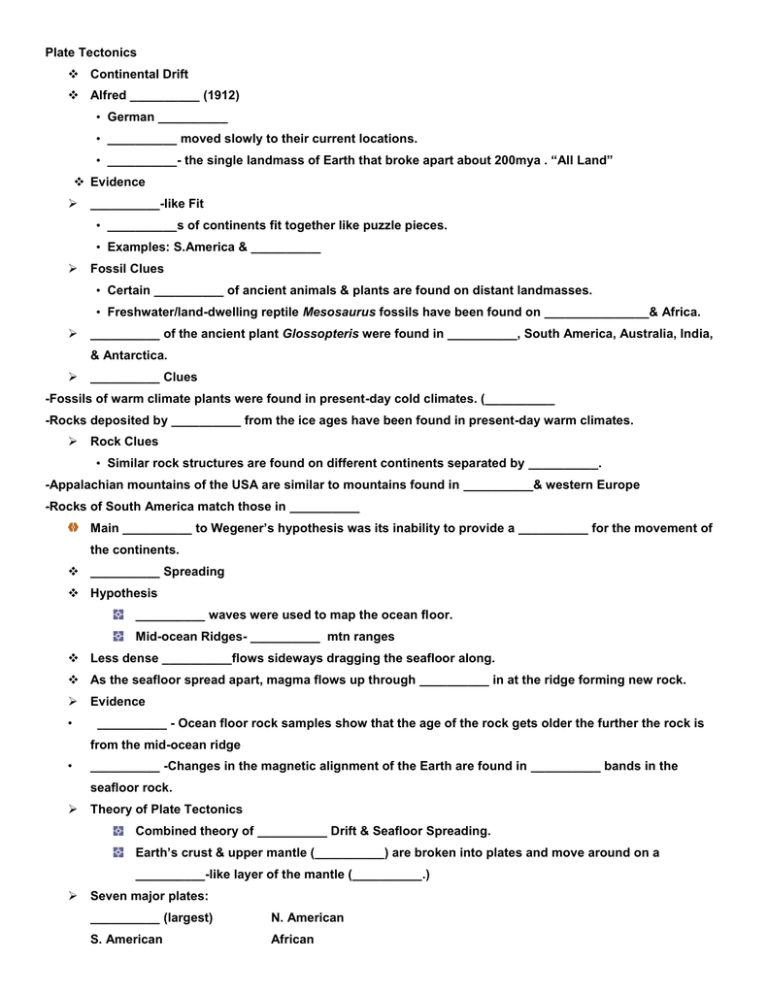
Plate Tectonics Continental Drift Alfred __________ (1912) • German __________ • __________ moved slowly to their current locations. • __________- the single landmass of Earth that broke apart about 200mya . “All Land” Evidence __________-like Fit • __________s of continents fit together like puzzle pieces. • Examples: S.America & __________ Fossil Clues • Certain __________ of ancient animals & plants are found on distant landmasses. • Freshwater/land-dwelling reptile Mesosaurus fossils have been found on _______________& Africa. __________ of the ancient plant Glossopteris were found in __________, South America, Australia, India, & Antarctica. __________ Clues -Fossils of warm climate plants were found in present-day cold climates. (__________ -Rocks deposited by __________ from the ice ages have been found in present-day warm climates. Rock Clues • Similar rock structures are found on different continents separated by __________. -Appalachian mountains of the USA are similar to mountains found in __________& western Europe -Rocks of South America match those in __________ Main __________ to Wegener’s hypothesis was its inability to provide a __________ for the movement of the continents. __________ Spreading Hypothesis __________ waves were used to map the ocean floor. Mid-ocean Ridges- __________ mtn ranges Less dense __________flows sideways dragging the seafloor along. As the seafloor spread apart, magma flows up through __________ in at the ridge forming new rock. • Evidence __________ - Ocean floor rock samples show that the age of the rock gets older the further the rock is from the mid-ocean ridge • __________ -Changes in the magnetic alignment of the Earth are found in __________ bands in the seafloor rock. Theory of Plate Tectonics Combined theory of __________ Drift & Seafloor Spreading. Earth’s crust & upper mantle (__________) are broken into plates and move around on a __________-like layer of the mantle (__________.) Seven major plates: __________ (largest) N. American S. American African Eurasian __________ Antarctic Plate Boundaries __________ Boundaries Two plates spread apart. Where __________ spreading occurs. __________ crust is formed. Ex: Mid-Atlantic Ridge • __________ Boundaries – Two plates come together (__________ – Oceanic plate will sink under a continental plate (__________) producing a deep __________. Ex: __________ & Cascades – Two oceanic plates will converge resulting in a __________ island arc. • Ex: __________ Islands __________ Fault Boundary – Two plates slide past each other. – Move at __________ rates. – Also known as __________slip faults. Ex: San Andreas Fault Causes (__________) • __________ Currents – Hot magma rises in the __________. – Magma hits the __________ & cools. – Cooling magma sinks dragging the ____________________ plate with it (centimeters.) – Magma sinks into the mantle & __________. Features Formed by Tectonics • __________ • – Cracks in the tectonic plates caused by __________. – Plate __________ are also faults. – Movement along faults cause __________. Volcanoes-Magma produced by friction during __________ oozes up through the crust, __________, & forms volcanoes. __________ • Convergent & Divergent boundaries form __________. • Process of mountain building is called __________. -Volcanic Mountains • __________ Mountains o Horizontal rock layers are squeezed from opposite sides, causing them to __________ & fold. EX: ____________________ & Appalachians • __________-block Mountains: Huge, tilted blocks of rock that are separated by __________. EX: Sierra Nevada • __________ Mountains- blocks of Earth’s crust are pushed up by __________ inside the Earth. (__________) EX: __________ Mountains
